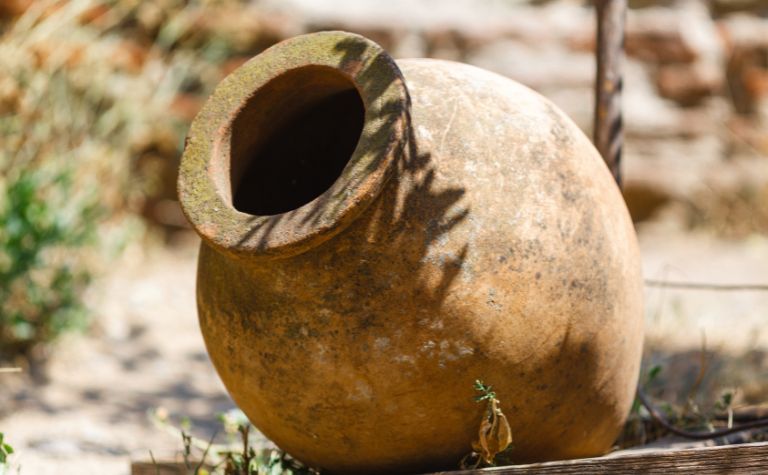Jesus Christ’s public ministry, as recorded in the four New Testament Gospels, consisted of almost 40 miracles. However, he performed many others, too (John 20:30). The first miracle Jesus did has added significance because it foreshadowed his ministry and reflected his identity. These facts lead many people to wonder about when, where, and why Jesus’ performed his first miracle.
Jesus Christ’s first miracle was changing water to wine at a wedding in the town of Cana in the region of Galilee. During the celebration, the wine ran out, and at the request of his mother, Mary, Jesus made more. He miraculously produced about 120-180 gallons of wine in six stone water jars.
Why did Jesus choose a wedding to perform his first miracle? What was Mary’s role in the scene? What did the wine symbolize? Why did Jesus perform miracles? What other miracles is Jesus known for? Keep reading to learn the answers to these questions and others.

Why did Jesus choose a wedding to perform his first miracle?
Jesus performed the miracle of changing water into wine before his public ministry started. The wedding at Cana was at most “semi-public,” as it was probably a small and private affair. Luke says that Jesus was about 30 years old when his public ministry started (Luke 3:23), so he was perhaps 28 or 29 when the wedding occurred. The faith of Mary, Jesus’ mother, was the catalyst for the miracle.
| Event | Dates | Scripture |
|---|---|---|
| John the Baptist baptizes Jesus | 26-27 A.D. | Matt. 3:13-17 |
| Jesus’ first miracle at Cana | 26-27 A.D. | John 2:1-11 |
| Jesus is tempted in the wilderness | 26-27 A.D. | Matt. 4:1-11 |
| Jesus cleanses the temple | 27 A.D. (Winter) | John 2:13-15 |
| Jesus meets Nicodemus | 27 A.D. (Winter) | John 3:1-21 |
| Jesus meets the Samaritan woman | 27 A.D. (Winter) | John 4:5-42 |
| Jesus begins to preach in Galilee | 27 A.D. (Fall) | Luke 4:42-44 |
Jesus responds to Mary’s faith
When the wedding ran out of wine, Mary looked to Jesus for help. “They have no wine,” she told him. Some scholars believe that Mary knew the family and may have had responsibilities at the wedding. Still, Jesus’ response shows reluctance, “Woman, what does this have to do with me? My hour has not yet come.” (John 2:2-4). In John’s Gospel, “hour” often refers to Jesus’ death (e.g., John 12:27).
Then John writes that Mary turned to the servants and said, “Do whatever he tells you” (John 2:5). Mary’s words indicate that she accepted the mild rebuke of her son yet simultaneously expected him to act. Why did Jesus hesitate to do what Mary asked? What caused her to tell the servants to prepare to obey Jesus?
New Testament scholar Craig Keener explains that Jesus acts because of Mary’s faith, not because she is his mother: “Although Jesus makes clear that his mother cannot command Jesus’ favor simply by virtue of her relation to him (cf. his brothers in 7:3-4), her faith becomes the catalyst for his action. Her requests are oblique enough to demonstrate unrelenting faith that he will do what she has asked.” [1]
Jesus turns water into wine
Jesus then told the servants to fill the stone jars with water. “Now there were six stone water jars there for the Jewish rites of purification, each holding twenty or thirty gallons. Jesus said to the servants, ‘Fill the jars with water.’ And they filled them up to the brim.” (John 2:6-7) When the master of the feast drank the wine Jesus made, he was surprised by the quality of it (John 2:8-10).
Many scholars see the symbolic significance in the water jars. Because they were used for purification, filling them to the brim indicates that Jesus fulfilled Jewish law. As Gospel of John commentator F.F. Bruce writes, “The time had come therefore for the new order to be inaugurated. The wine symbolizes the new order as the water in the jars symbolized the old order.” [2]

Why did Jesus perform miracles?
Jesus’ miracles were “signs,” which meant they pointed to a greater reality than their immediate context. So, for example, when Jesus turned water into wine, the ultimate meaning of the supernatural act wasn’t about providing drinks for wedding guests. Instead, the most important part of the miracle is what it communicated about who Jesus was and what he came to earth to do.
At the end of the story of Jesus changing water to wine, John writes, “This, the first of his signs, Jesus did at Cana in Galilee, and manifested his glory. And his disciples believed in him” (John 2:11, ESV, emphasis added). John records other “signs” that Jesus did, too (e.g., John 4:54). Like when Jesus changed water to wine, each of them showcased God’s glory and led people to put their trust in Jesus.
The Greek word translated as “signs” is semeion (σημείων) and means “to confirm, corroborate or authenticate” someone or something. All major Bible translations render semeion “sign” or “signs” (NIV, NASB, NKJV, NLT), except the KJV, which reads “miracles.” Therefore, although Jesus’ miracles helped people who needed healing, food, faith, and other things, they also revealed God to people.

Miracles in the Bible and the Gospels
In the Bible, a miracle is an act of God in which he supernaturally suspends or overrides natural states or processes to produce his desired result. The Bible contains miracles from Genesis to Revelation, demonstrating God’s personal intervention in history. The four Gospels, Matthew, Mark, Luke, and John, also record dozens of Jesus’ miracles. Some of his most well-known supernatural acts include:
- Changing water to wine (John 2:1-11)
- Stilling the storm (Matt. 8:23)
- Feeding the 5,000 (Mark 6:30)
- Walking on water (Matt. 14:25)
- Healing a servant’s ear (Luke 22:51)
- Raising Lazarus from the dead (John 11:43)
Jesus’ miracles weren’t parlor tricks or circus acts. They didn’t involve sleight of hand, misdirection, or magic. Jesus didn’t do miracles to entertain people, and he never asked the recipients of them for money or favors. On some occasions, he even asked those who benefitted from his miracles not to tell anyone about them as it would lead the political and religious authorities to persecute him.
“The New Testament without the miracles would be far easier to believe. But the trouble is, would it be worth believing?” – Theologian Gresham Machen
References:
[1] The Gospel of John: A Commentary, Vol. 1 by Craig Keener. p. 501.
[2] The Gospel of John by F.F. Bruce. p. 71.
Recent Posts
Every year, millions around the globe commemorate the birth of Jesus Christ on December 25th, a date synonymous with Christmas and festive celebrations. However, despite its widespread...
The term "Nativity" is often immediately associated with the birth of Jesus Christ and the stories surrounding this event. Yet, the essence of the word encompasses much more than a single...
